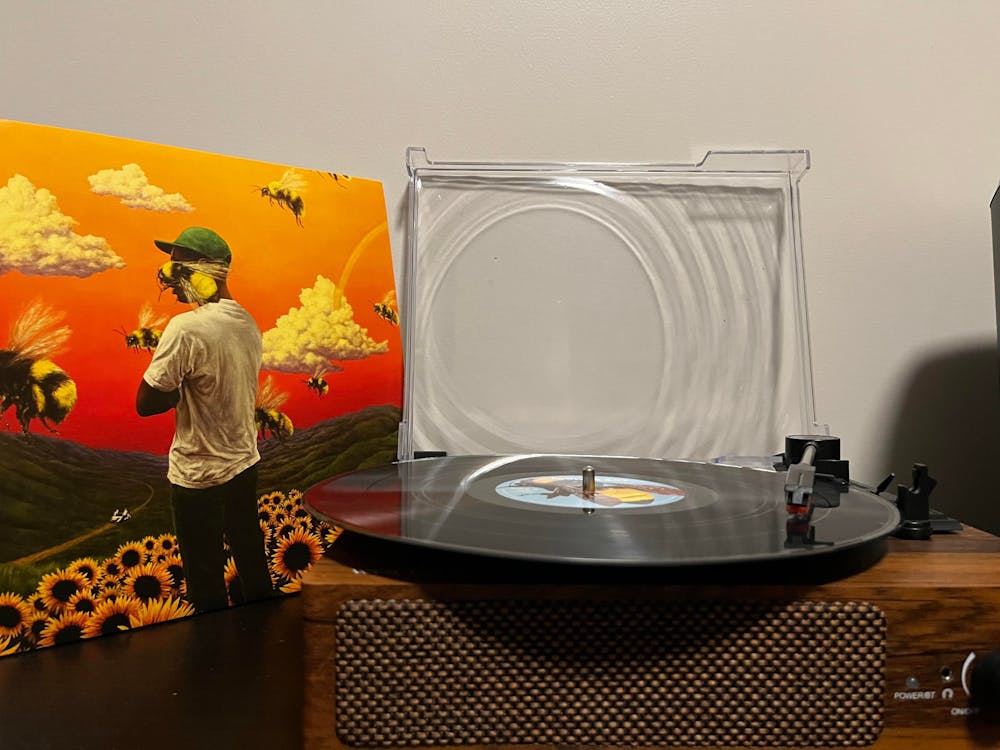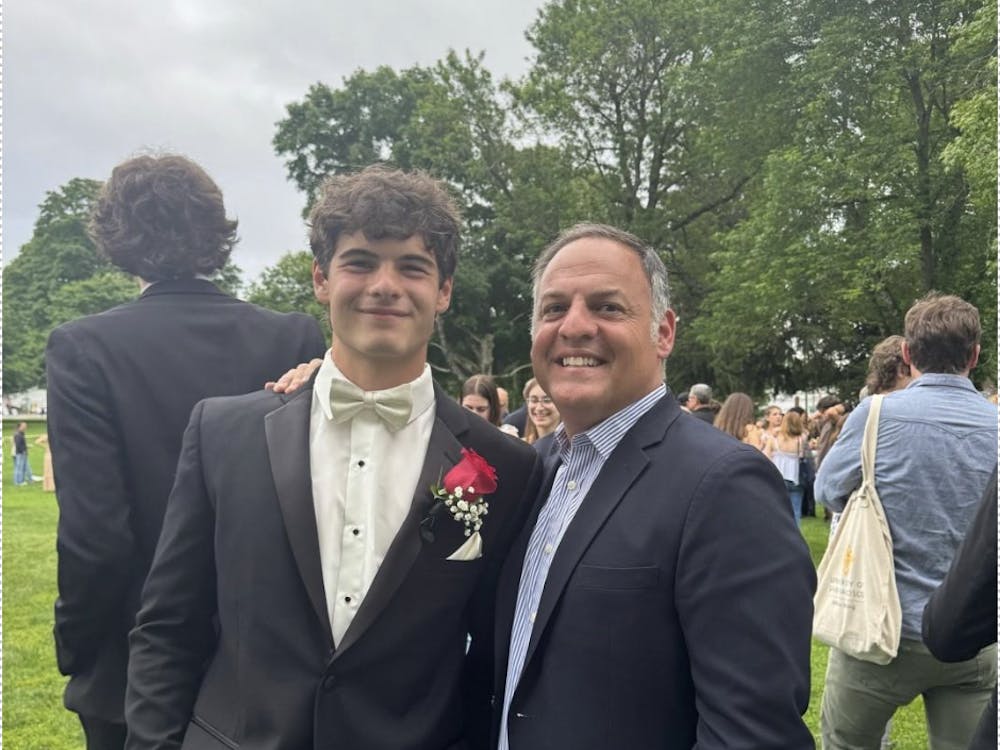
When you listen to a vinyl, it is both the first and last time you’ll hear it. As the needle traverses the record it creates new grooves, subtle nicks here and there, like a co-producer editing the musical content beyond the control of its original artist.
If you were to pick up the needle and place it back at the exact same spot you had just minutes prior, you may think you’re listening to the same song, but you’re not. You’re listening to a whole new record.
In that same vein, every moment we experience in the present is unique and cannot be re-experienced. Even if you’re going to the same class for the third time this week, it won’t be the same as the first. And it may be your 20th birthday, but you only get your 18th once. The list goes on and on.
This isn’t a revolutionary idea by any means, but it’s easy to forget as an undergraduate at Hopkins, and understandably so. It’s hard to appreciate the qualities of the present when it comes to three midterms and an endless stream of assignments.
The busyness of the day-to-day, along with its various stressors, pulls students away from the present and has them peer into the future. Conversations are full of spring break plans and the next trip to D.C. Students endure the present by looking forward to the end of the class, the end of the exam and the end of the semester.
As a bit of an optimist myself, I tried to find joy in things by switching my perspective to see all things positively. Three midterms this week? An exercise in discipline. Club meetings at 11 p.m.? A test in patience. It’s an effective methodology, but it requires a persistent concerted effort.
Essentially, you’re attempting to mentally move an inherently difficult task into the category of enjoyable and fun, which is like moving a point from –5 to +5 on a number line. That’s a total of 10 whole tick marks you’re going to have to trudge through, and when you’re juggling multiple tasks, the effort to be joyful in all of them exponentially magnifies.
After graduating, things changed a lot. Peering into the future was no longer a restful excursion. The future was uncertain, full of twists and turns hidden within a dense forest. I felt like Little Red Riding Hood, but I already knew my grandmother, God bless her, was long gone and the wolf was waiting. This made the past much more attractive to think about.
I reminisced about the horror movie nights I had with friends, spontaneous Hampden trips and health-savvy 2 a.m. UniMini runs. But more than missing these moments that were inherently joy-bringing, I found myself thinking of other random experiences. The awkwardly tight seats at Remsen Hall, the precarious marble steps at the breezeway and the at-times dry chicken breast at Fresh Food Cafe filled my mind.
Even the stress of midterm season was something I grew to miss. Something about being in the fire with your friends builds camaraderie like no other. Shedrach, Meshach and Abednego would attest to that.
This is all to say that in the present, our judgment of what is a good or bad experience is faulty. We may label a present experience as a –3 and later remember them fondly as a +7. So instead of focusing on discerning each experience as bad or good and taking the absolute value when needed, appreciating the present for its uniqueness only requires that we sit still at neutral, at zero.
Instead of trying to spin a bad thing into a good thing, it’s helpful to see that there is value in both the good and the bad because they are both unique. The trek from –5 to zero is a lot more appealing and sustainable than the marathon to +5.
Perhaps this perspective is optimistic, that the record that I’ve listened to simply hasn’t had enough jarring segments of dissonance or screeching moments of fortissimo. But in a world busy pressing forward or looking back, it’s best to enjoy the sound the current record is playing because you won’t get to hear it again.
Joseph Kang is a research assistant at Hopkins from San Jose, Calif.





